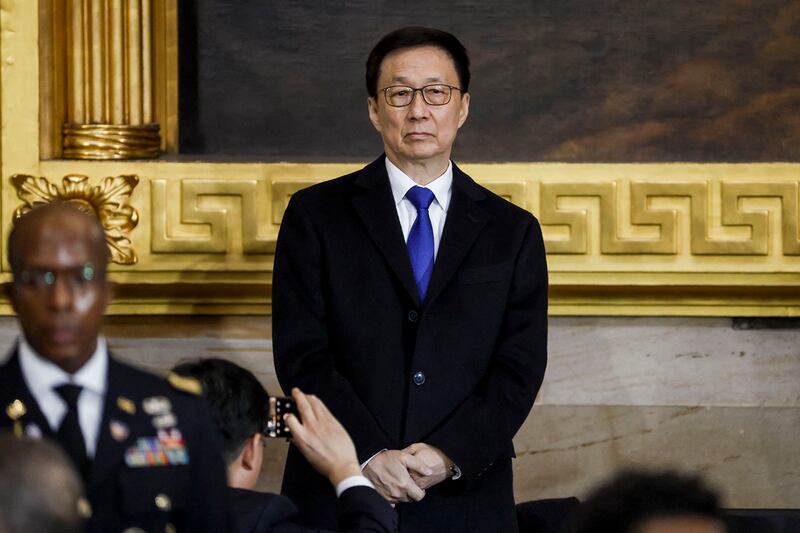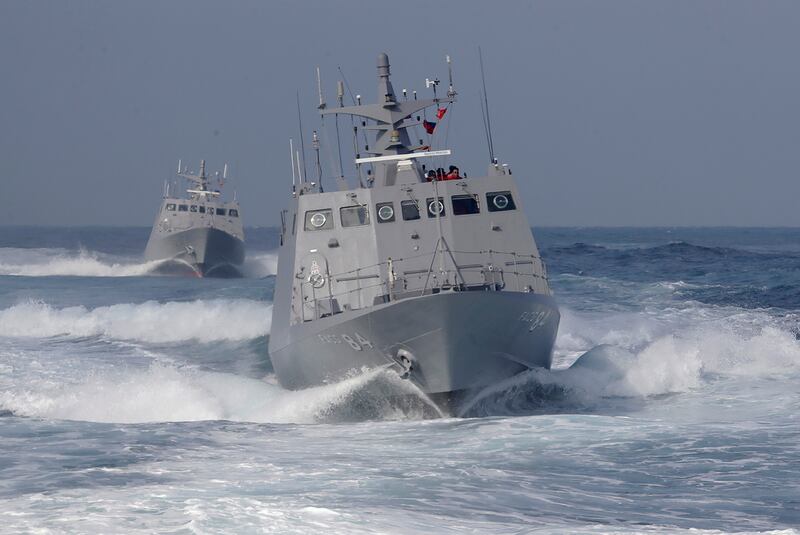Beijing views the second presidency of Donald Trump as a “critical” juncture that could improve ties with the United States, according to official commentaries in state media.
“The river of history is constantly flowing, and the critical points are often just a few steps,” the People’s Daily, official newspaper of the ruling Communist Party, said in an op-ed published on Monday, the Trump’s inauguration date.
Describing the international situation as “full of change and chaos,” the article said the bilateral relationship should be managed from a “strategic and long-term perspective, which will bring more certainty to a turbulent world.”
“China-U.S. relations are the most important bilateral relations in the world ... affecting the future and destiny of mankind,” the commentary said, citing a need for more exchanges between the Chinese and American people.
“Both sides need to move towards each other,” it said.
The official commentaries come amid multiple media reports that Trump plans to visit China within 100 days of taking office, and that a face-to-face meeting with Xi is on the cards.
Chinese Vice President Han Zheng, who attended Trump’s inauguration ceremony on behalf of Xi Jinping, met with Vice President-elect J.D. Vance on Jan. 19 to discuss various bilateral issues including fentanyl, trade balance and regional stability.

Han also met with Trump ally Elon Musk, telling him that American companies including Tesla are welcome to “share the fruits” of China’s development.
The nationalistic Global Times said the recent migration of TikTok users to China’s Xiaohongshu, or RedNote, social media platform and the exchanges seen on the platform between Chinese and Americans was a good example of positive “people-to-people” exchanges.
Trump-Xi phone call
It also said Friday’s phone call between Trump and Xi was a “compass” showing where the relationship is headed.
“This telephone conversation showcased interaction at the highest level, reflecting both sides' deep understanding of the importance of China-US relations and their positive attitude toward cooperation,” the paper said in a Jan. 20 op-ed.
“This call set the tone for the direction of China-U.S. relations in the coming period,” the article said, noting that demand for exchange-traded funds linked to Chinese stock indexes had spiked following the call.
“[This] indirectly reflects how sensitive and hopeful the world is about the possibility of a good start to China-US relations,” it said.
But it said the previous approach in Washington had led to “negative assets” in the relationship and “numerous problems that need solutions through dialogue.”
It called on the new administration to “move beyond the mindset of viewing China as a formidable enemy,” but it said China’s territorial claim on democratic Taiwan was “a red line that China cannot allow to be challenged.”
RELATED STORIES
Trump ‘invited’ China’s Xi to inauguration in Washington
Asia sends top officials to Trump inauguration amid concern over trade, security
China’s exports spike ahead of Trump inauguration, tariff fears
In Hong Kong, the Chinese-language Ming Pao newspaper said the Sino-U.S. relationship would likely get off to a “relatively harmonious start under Trump 2.0,” citing the phone call and Xi’s invitation to the inauguration.
“However, the United States has always regarded China as the most important strategic competitor, and Trump’s high-ranking officials and staff have not changed their hawkish position,” the paper said in a Jan. 20 op-ed. “There are still many variables when it comes to whether Sino-US relations can be stabilized and improved.”

Current affairs commentator Wu Qiang said a more domestically focused approach to global cooperation is actually something that is shared by China and the Trump administration, and that the relationship would likely improve with more direct contact between Trump and Xi.
“At the very least, they can balance the relationship by strengthening the relationship between their individual leaders,” Wu said. “This is the kind of strengthening that is welcomed by the leaders of China and also Russia.”
He said such relationships would act as a “parallel” axis of international cooperation, alongside the China-Russia alliance and the U.S. relationship with allies NATO, Europe and Southeast Asia.
Russia, Trade
Commentator Yuan Hongbing said Trump’s plan to visit China is likely part of a bid to get Beijing’s help with a ceasefire in Ukraine.
“The fundamental reason he is now showing goodwill towards Xi Jinping is that he wants to meet his diplomatic commitments,” Yuan said. “Russia is already in a position of advantage on the battlefield.”
But trade is also likely high on the agenda, according to Yuan and a veteran Chinese journalist who gave only the surname Kong for fear of reprisals.
“It’s part of the plan to make America great again,” Kong said, referencing Trump’s slogan. “He believes that the trade deficit has had an impact on the U.S. economy.”
“But what kind of pressure he will bring to bear ... that will be a key focus of his trip to China.”
Sun Kuo-hsiang, director of Taiwan’s Nanhua University, said Taiwan could see its defense concerns drop further down the list of U.S. priorities under Trump.
“During his first term, Trump put a strong emphasis on transactional diplomacy, and so he may use Taiwan as leverage, for example, reducing arms sales or limiting official contacts, in exchange for concessions from China on trade or international issues,” Sun told RFA Mandarin in a recent interview.
He said that could undermine Taiwan’s ability to defend itself in the event of a Chinese invasion.
“If Sino-U.S. ties ease, then China may believe that the United States has softened on Taiwan, and step up its military and diplomatic activities,” Sun said. “That will bring far more uncertainty to the situation in the Taiwan Strait.”
Translated by Luisetta Mudie. Edited by Malcolm Foster.
